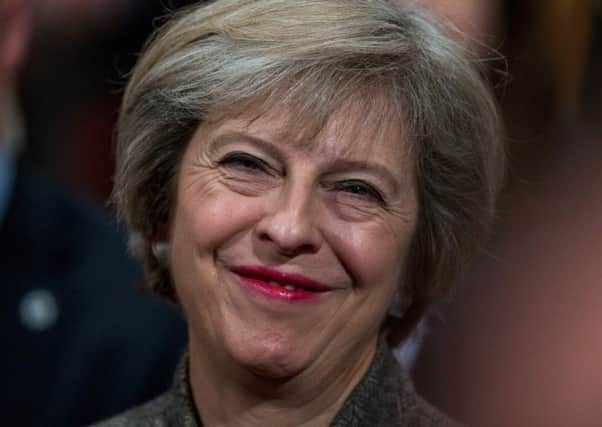UK to opt out of human rights law '˜to protect troops'
This article contains affiliate links. We may earn a small commission on items purchased through this article, but that does not affect our editorial judgement.


Under changes being outlined at the Conservative Party conference in Birmingham, the Government will adopt a presumption that it will take advantage of a right to suspend aspects of the European Convention on Human Rights at times of war.
Mrs May said the move should end an “industry of vexatious claims” which has seen veterans of Iraq and Afghanistan pursued through the courts over alleged mistreatment of combatants and prisoners over a decade after the supposed events took place.
Advertisement
Hide AdAdvertisement
Hide AdDescribing herself as “not the biggest fan of the EHCR”, she said it would reduce the burden on taxpayers, which has seen the Ministry of Defence spend more than £100 million on Iraq-related investigations, inquiries and compensation since 2004.
Mrs May last month raised concerns over the “industrial scale” of claims lodged with the Iraq Historic Allegations Team (Ihat), which was set up in November 2010 to look into allegations of murder, abuse and torture of Iraqi civilians by UK military personnel between 2003 and 2009.
Ihat has considered claims relating to more than 1,500 individuals, ranging from ill-treatment during detention to assault and death by shooting.
Some 326 cases have been settled with the payment of around £20 million in compensation, but concerns have been raised about servicemen facing investigation even after having been cleared of wrongdoing by criminal courts.
Military advisers have warned that the extension of the Convention’s provisions to the battlefield threatens to undermine the operational effectiveness of the armed forces, said Government sources.
The 1953 European Convention permits signatories to suspend their obligation to observe certain human rights responsibilities “in time of war or other public emergency threatening the life of the nation”.
But the procedure - known as “derogation” - may not be used in respect of the right to life and prohibitions on torture, slavery and retrospective criminal penalties.
France took advantage of the procedure in November 2015 during its response to the terror attacks in Paris, while the UK took the same step several times during the Northern Irish Troubles in the 1970s, and was backed by the European Court of Human Rights.
Advertisement
Hide AdAdvertisement
Hide AdMrs May told Sky News’s Sunrise: “Our troops - our men and women in our armed forces - go out there and put their lives on the line in order to defend us and do things that most people wouldn’t be willing to do, in terms of going out and potentially paying the ultimate sacrifice for us.
“I think they should know that Government is on their side. They should have the confidence when they go into combat for us that they are able to do what is necessary to keep us safe and to defend this country.
“What we’ve seen in recent times is human rights legislation being used to generate all these vexatious claims and troops finding themselves in some difficulty and worrying and concerned about the future as a result of that.
“I think it’s absolutely right that the Government should say to our troops ‘We are on your side’.
“Of course , if there are credible allegations of criminal behaviour, those need to be investigated, but we need to stop this industry of vexatious claims which has grown up, with lawyers appearing to chase around to find anybody who will bring a claim against our troops.”
Mrs May stressed that UK forces will at all times be required to operate in accordance with international humanitarian law - including the Geneva Conventions - and service law.
Lawyer Jocelyn Cockburn, who has brought cases against the Government on behalf of British soldiers over claims of inadequate equipment, questioned whether the move would achieve its aims as articles regarding unlawful killing and torture could not be opted out of.
“They say they are trying to protect soldiers from allegations of abuse, but I’m not quite sure that this action will achieve that,” she told the BBC Radio 4 Today programme.
Advertisement
Hide AdAdvertisement
Hide AdMs Cockburn said: “We are using the convention to establish that, in relation to inadequate equipment, the MoD failed to protect the right to life of soldiers.”
Tory MP Tom Tugendhat, who served in Iraq, told the BBC the right to life for combatants was suspended to a certain extent in battle situations.
“Your own right to life is to a certain extent secondary,” he said.
DOWNLOAD THE SCOTSMAN APP ON ITUNES OR GOOGLE PLAY